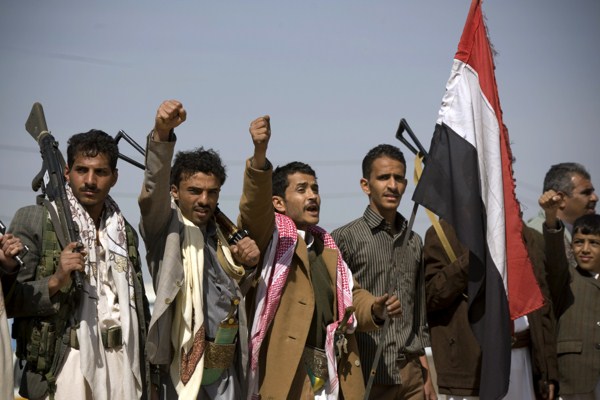Infighting over control of the levers of power rumbles on in Yemen, where last month Houthi rebels forced the resignation of the government at gunpoint. Although it has attracted less attention, the country’s economy is also in increasingly dire shape. If, as is likely, nothing is done to shore up government finances in the coming months, a long-predicted economic collapse is more or less certain.
President Abd-Rabbu Mansour Hadi announced his plans to step down on Jan. 22, shortly after his prime minister, Khaled Bahah, and the Cabinet he assembled last November said they were resigning en masse due to the Houthi power grab. The Houthis, a Zaydi Shiite group from the north of the country who have effectively controlled the capital, Sanaa, since September, seized the presidential palace and Hadi’s private residence along with the headquarters of Yemen’s two main intelligence agencies on Jan. 21. They have since kept the president, prime minister and Cabinet members under house arrest.
Diplomats and political leaders in Sanaa are working to convince Hadi to rescind his resignation, while discussing the idea of a presidential council to run the country for an interim period before early presidential elections. Even if he were to change his mind about resigning, Yemen’s interim president of three years would probably have to govern in concert with the Houthis and other political players with whom he has a troubled relationship, including loyalists of former President Ali Abdullah Saleh. If, on the other hand, Hadi leaves, those groups will still be heavily represented in the country’s new governing body, and they are unlikely to be as open as Hadi was to cooperating with the international community; in November, at the urging of Washington, the U.N. Security Council placed sanctions on Saleh and two leading members of the Houthis’ military wing.

